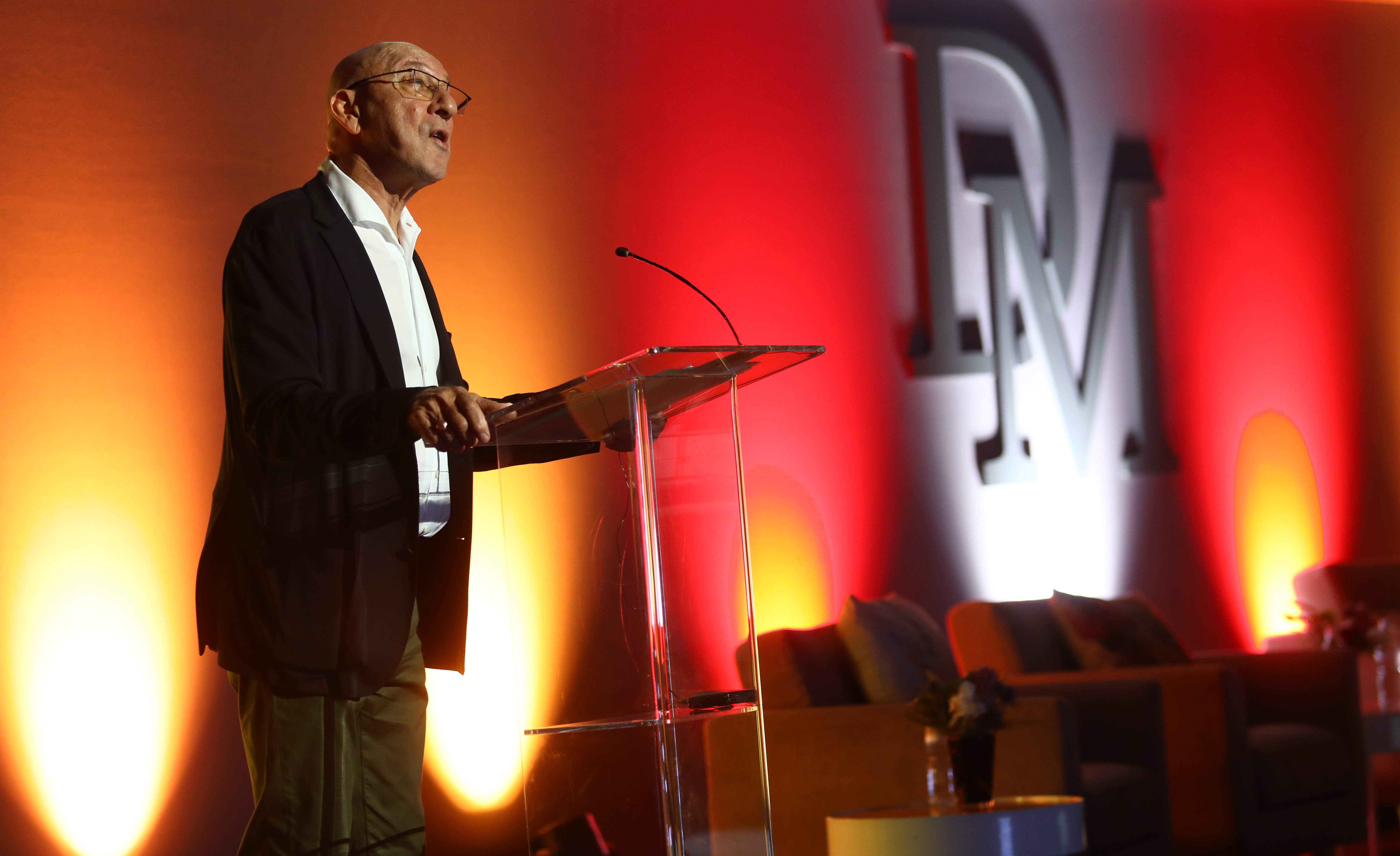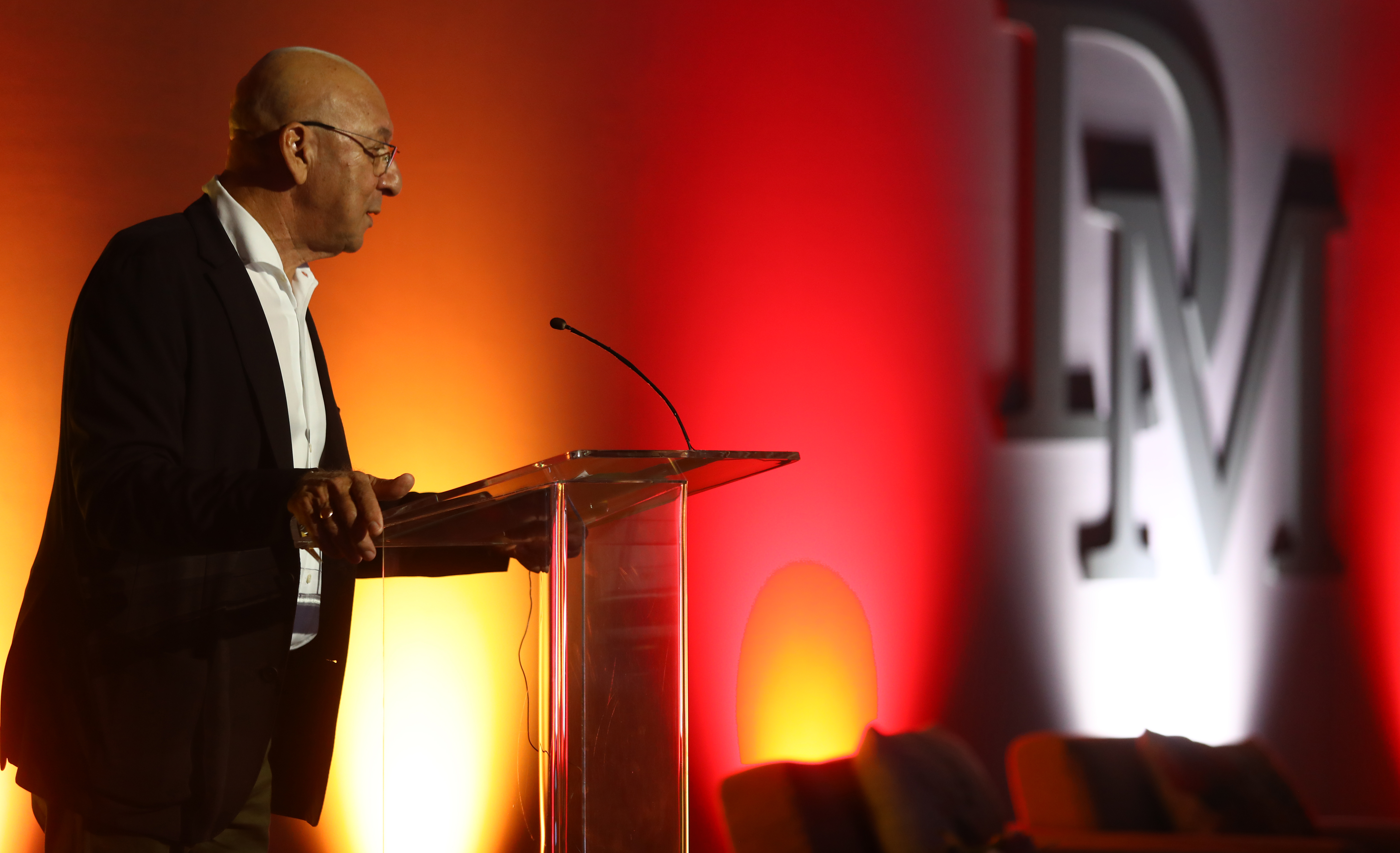Anti-apartheid activist and former Minister of Finance Trevor Manuel identified the greatest weaknesses in the state at present to be human resources management and financial management, with an emphasis on supply chain management, during his keynote address at Daily Maverick’s The Gathering Twenty Twenty Four on Thursday. The event took place at the Cape Town International Convention Centre in Cape Town.
He went on to say that while various attempts had been made to “reorder” these matters, they always tended to come up against the “imperatives of the electoral cycle and its marauding caucuses”.
https://www.youtube.com/watch?v=v8SQj0TpvEo
“Early in democracy, we applied our best endeavours of statecraft to how a democratic state could exercise its control over the organs of state. We were convinced that such control would be best established by allowing managers control over their key resources, being people and finance. We passed the Public Service Act in 1994 and the Public Finance Management Act in 1999. The approach was on the disassembling of the highly centralised organs that had hitherto existed for the purpose of advancing the Broederbond agenda,” he said.
Manuel acknowledged that his generation had been accused of walking away from an “incomplete transition”, adding that there was a need for an honest discussion about those aspects that remained “undone”. In particular, he drew attention to the vast range of presidential prerogatives in South Africa — including the unfettered power to appoint Cabinet and deputy ministers; premiers; heads of all of security and intelligence services; and foreign representatives — that could be carried out “without query or oversight”.
“It has often been stated that we created a Constitution in the naïve hope that all of our heads of state would act like Nelson Mandela,” he said.
Read more in Daily Maverick: The Gathering 2024
Issues of crime and corruption
Honing in on issues of crime and corruption in SA, Manuel referenced the seven-point plan to strengthen the criminal justice system that was included in the drafting of the National Development Plan 12 years ago. The plan was to:
- “Adopt a single vision and mission, including performance-measurement targets for the criminal justice system;
- “Establish, through legislation or by protocol, a new and realigned single coordinating and management structure for the system;
- “Make substantial changes to the present court process in criminal matters ;
- “Put into operation priorities identified for the component parts of the system;
- “Establish an integrated and seamless information and technology database for the national criminal justice system;
- “Modernise, in an integrated and holistic way, all aspects of systems and equipment; and
- “Involve the public in the fight against crime by introducing changes to the community police forums.”
“None of these have been taken up,” he said.
“Since the NDP was drafted, there have been significant advances in artificial intelligence and technology platforms. Yet, the SAPS has still not been able to introduce a digital biometric system — other departments, including the notoriously challenged Department of Home Affairs, have done so,” he continued. “So, with the SAPS, for a task as uncomplicated as getting fingerprints, they continue to use ink, rollers and pads just as they did a century ago.
“The proposal to have digitised dockets transferred seamlessly between the local and regional police, the prosecutorial service, the courts and correctional services remains far too modern, if that is what you wish to believe, or more than likely the reality is that digital dockets leave an electronic footprint that cannot easily be sold.”
Manuel added that for a budget of R109.4-billion, South Africa employs 188,000 SAPS personnel, yet the general public “have no idea what they do every day”. There are 39,801 detectives, according to estimates of national expenditure, yet each investigator carries about 100 case dockets at any point in time.
“What is the success rate of investigations and prosecutions? Something does not add up,” said Manuel.
 Trevor Manuel at the Gathering Twenty Twenty Four Election Edition addresses the crowd at CTICC on 14 March, 2024. (Photo: Shelley Christians)
Trevor Manuel at the Gathering Twenty Twenty Four Election Edition addresses the crowd at CTICC on 14 March, 2024. (Photo: Shelley Christians)
“We need a minister [of police] who will collaborate closely with active managers to ensure that the letter and spirit of the Constitution and the South African Police Service Act is applied.”
The National Prosecuting Authority, he continued, was “hollowed out” during the tenure of individuals like Shaun Abrahams (former deputy national director of public prosecutions), Nomgcobo Jiba (former deputy national director of public prosecutions) and Lawrence Mrwebi (former special director of public prosecutions). He stressed that skills within the NPA needed to be speedily rebuilt.
Turning his focus to the issues of South Africa’s courts, Manuel highlighted that these institutions couldn’t “perform miracles if the institutions upstream are incapable”. He also criticised the massive drain on resources commonly seen in SA’s high-profile cases.
“We now know that the costs of impeaching John Hlophe were approximately R10-million and that the former public protector Busisiwe Mkhwebane notched up legal costs of R30-million. I cannot even calculate what the legal costs, on both sides — his and those of the state — Jacob Zuma [has incurred for] the taxpayers,” he said.
“...there are too many cases that do not make the roll because the system is snarled up. South Africa is in desperate need of a fresh approach to rebuild trust in the legal system.”
Manuel concluded with the sentiment that the “rupture” of the years in which former president Jacob Zuma and current president Cyril Ramaphosa held the top office should not cause South Africans to give up on the “very fine values” that bind the nation and are articulated in the Constitution.
“Part of the message here is that we identify what is wrong and convene across political lines to seek remedies. With the best will in the world, these matters will not be addressed in a new Parliament, however constituted, from June. We need to debate with, but also beyond the political parties.” DM




 Trevor Manuel at the Gathering Twenty Twenty Four Election Edition addresses the crowd at CTICC on 14 March, 2024. (Photo: Shelley Christians)
Trevor Manuel at the Gathering Twenty Twenty Four Election Edition addresses the crowd at CTICC on 14 March, 2024. (Photo: Shelley Christians) 